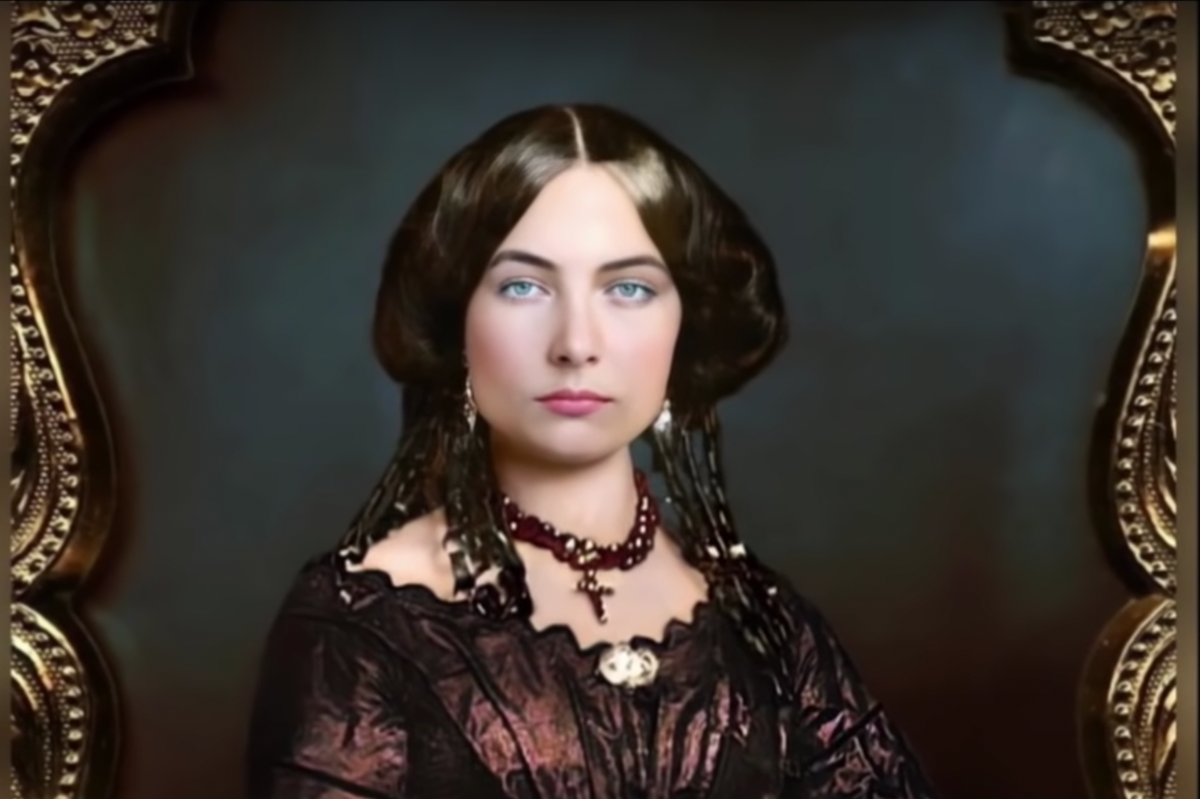AI technology helps render portraits from the Victorian era that are 'moving' in every way
The artists at Mystery Scoop breathe new life into old photographs using color restoration and facial movement.

Mystery Scoop creates all kinds of moving portraits based on historical figures.
For better or worse, AI technology has opened up a whole new genre of art. Artists who use it have been able to create some truly remarkable works—whether that’s bringing back beloved icons or bringing cartoon characters to life in a hyper-realistic way.
The creators behind Mystery Scoop have also blended some digital art wizardry and AI programs to render portraits from the late Victorian era that not only have stunning color, but lifelike movements. And the results are mesmerizing.
A video posted to their YouTube channel titled “19th Century Portraits Brought To Life” shows Victorian men and women as they undergo a full restoration, thanks to colorists Klimbim and Lorenzo Folli. But the magic doesn’t stop there. The “labor of love” also incorporates the “latest tools in AI technology" to bring facial movements to the photo. These static, black-and-white portraits quickly become breathing, blinking, smirking seemingly living beings.
For many viewers, the modernized portraits provided so much more than shock value. People were genuinely moved—a tried-and-true sign of successful art. “I cannot explain the emotions that this brought over me,” one person commented. “I began to tear up immediately. Knowing that these people are long gone...yet brought to life by someone years after their passing. They're being remembered in such a beautiful way. Seeing them fade in and out of life was haunting. This was absolutely powerful.”
Another commenter poignantly noted how these simple touches helped instill feelings of empathy. “The animation allows you to see the glimmer of who they were…a shimmer of their soul perhaps! You can see their hopes and dreams rise up into their eyes and ever so fleetingly, even their fear and worry and sometimes grief flickers softly in their expressions! Then you can't help hoping that they lived happily…I know it is all an illusion and yet it makes me care about them and care deeply.”
Of course, people of the late Victorian age aren’t the only ones to receive the Mystery Scoop treatment. The group’s channels across YouTube, Instagram and TikTok are filled with historical figures of different decades.
Below is infamous outlaw Bonnie Parker, sans her beau Clyde Barrow.
@mysteryscoop Replying to @mp_849 Bonnie Parker, c.1934, famous outlaw during th 1930s, Clyde Barrow's partner. #bonnieandclyde #bonnieparker #gangsters #outlaws #barrowgang #american ♬ Cornfield Chase - Dorian Marko
Here’s another, beloved artist Frida Kahlo.
@mysteryscoop Frida Kahlo, 1939, by Nickolas Muray, brought to life. #fridakahlo #surrealist #mexicanpainter #mexianart #surrealism #kahlo#broughttolife #art #frida #mexica #mexico #mexican #nickolas #diegorivera #muray #nickolasmuray #magdalena ♬ Running Up That Hill (A Deal With God) - Kate Bush
Adding Kate Bush music to the image was certainly a nice touch.
And another of a smiling, yet stoic Abraham Lincoln.
By “infusing still pictures, statues and paintings with realism,” Mystery Scoop has found a new way to help the legacy of those who’ve passed live on in the hearts and minds of those still here. While there is much to be said about how AI can take away from the human experience, it’s hard not to see works like this and appreciate how it can bring people together just as easily. One thing is for sure—humanity could always use art that touches us on an emotional level. And when a piece of art does, that’s worth celebrating.
- Vienna museums thwart censorship by posting their 'adult' art on ... ›
- Artist uses AI to create life like portraits of Encanto characters ... ›
- AI artist creates realistic portraits of dead celebrities - Upworthy ›
- How Lensa AI avatars steal from real artists - Upworthy ›
- College student launches app that can detect AI in an essay - Upworthy ›
- AI portraits reimagine young celebrities as they age - Upworthy ›
- Procreate CEO rejects generative AI, defends human creativity - Upworthy ›





 Rihanna Nails GIF
Rihanna Nails GIF A photo of Helen and Bill in their uniformsImages provided by Drew Coyle
A photo of Helen and Bill in their uniformsImages provided by Drew Coyle The map provided by Helen to Bill@crewdoyle/
The map provided by Helen to Bill@crewdoyle/ Helen and Bill, happy and and content, and oh so in love. Image from Drew Coyle
Helen and Bill, happy and and content, and oh so in love. Image from Drew Coyle Good luck trying to catch a gazelle.
Good luck trying to catch a gazelle. Chickens will eat just about anything.
Chickens will eat just about anything. There's actually a big difference between horses and zebras besides just the stripes.
There's actually a big difference between horses and zebras besides just the stripes. A photo of a portable carbon monoxide detector from Amazon
A photo of a portable carbon monoxide detector from Amazon


